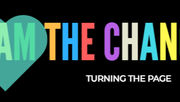It is better not to express what one means than to express what one does not mean.
- Aug 25, 2020
- 7 min read
Updated: Sep 28, 2020
CONTINUING ON CORONA VIRUS AND PLASTIC POLLUTION
Hello Tuesday,
Good day everyone, it’s the last full week of August. Did we have fun this month?
We all feel the pressures to conform throughout our lives — to the expectations, values or worldviews of others, be it in our intimate circles or in society at large.

In the short run, it can seem the easy way out to simply bend to the opinions of others in our pursuits of intimacy, acceptance and achievement. It’s only in the long run that we realize this “success” can bring little happiness, because it’s a kind made for the life of another. It’s time you faced your fears and found the courage to build your future from the inside out. To aid you on your journey,
express yourself. The harder path, in the short run, is the one we chart ourselves.
But down the road, the destination has our name inscribed above the doorway, with love and fulfillment waiting for us on the other end.

To be yourself in a world that is constantly trying to make you something else is the greatest accomplishment. – Ralph Waldo Emerson
Continuing on the topic of corona virus, which has worsened the ocean plastic pollution problem. Here are some more facts that are costing our pollution not only in the ocean, but on our streets.

FACT 1. The oil market collapsed, making plastic cheaper to use than ever. Corona virus, along with OPEC politics, has contributed to a global crash in the oil markets. Oil and natural gas (the latter of which was already at record low prices pre-corona virus) are the key raw materials used to make plastic. Their all-time low cost has increased the price disparity between alternative materials (think cellulose, seaweed) and virgin plastic, which has always been the most inexpensive way to package goods. To be financially competitive in the marketplace, it is now extremely advantageous to package your goods in newly made, cheap virgin plastic.

FACT 2. Single-use plastic use is going through the roof as a result of increased takeout. With the economic crisis making the average consumer more price-sensitive, affordable goods are taking precedence over environmentally friendly ones. Since grocery items that come in plastic are universally less expensive, those items are the go-to for cash-strapped shoppers. And while takeout has been the saving grace for many restaurants, it’s also contributing to the growing heap of single-use plastic globally. Much of this kind of plastic is not recyclable. 2020 is on pace to see 30 percent more waste than 2019.

FACT 3. Recycling systems around the world are starting to break down because of corona virus budget strains. So, where does all this extra plastic go?
In the Western world, much of it ends up either in landfills (in North America) or incinerated (in Europe), and a small amount—10 percent on average—gets recycled. The U.S. has about 9,000 recycling facilities, most of which are run by municipalities and tied to local budgets. As states bear the brunt of corona virus-related health and unemployment costs, some municipalities are suspending their recycling services. Peoria, Illinois, has already cut recycling programs. Omaha and New Orleans are considering massive cuts to save money as well. Lexington, Va., is also considering curbing its curbside recycling.

In the developing world, plastic often ends up mismanaged in open dumps, eventually leaking into the environment, ultimately making its way into rivers and then into the oceans. Much of the minimal funding directed to waste management infrastructure in developing economies has been appropriated as a result of the virus. So, what happens in the U.S. and Europe is even further amplified in Indonesia, Brazil, India, Kenya, Guatemala and Haiti.

FACT 4. Fifteen million waste pickers in the developing world pick up plastic off the streets; out of massive open landfills; and, in many cases, off beaches.
In recent months, some waste-picking communities have been forced to pick up twice as much plastic as they once did for the same amount of money. In some cases, this discourages them from picking up plastic at all, as other materials are more valuable.

FACT 5. As far as ocean plastics solutions go, waste pickers are an integral piece of the puzzle—the last line of defense between plastic waste and the oceans. Given current market conditions, many are not able to play this vital role.

FACT 6. Combine the breakdown of the recycling infrastructure in the West and in the developing world with the corona virus-related explosion of single-use plastic, and you have a plastic tsunami gaining strength in our oceans.

FACT 7. The Ocean Plastics Leadership Network, a community of 67 member organizations (activist to industry) working together to innovate and actualize solutions to the ocean plastics crisis. They are committed to simplifying communications regarding the gravity of this crisis (so the average person can understand the complexity) and accelerating solutions to this problem. WWF, Coca-Cola, P&G, Greenpeace, the Ellen MacArthur Foundation, Dow, the Ocean Conservancy and National Geographic are among the dozens of organizations on this “Leader-ship”.
VALUABLE 🌼VALUED
Good morning Tuesday 🌄 be confident knowing that you are valuable and valued. Shift your focus to what really matters🌻 have an excellent day.
As a neutral party in a sea of conflicting, wildly variant viewpoints on how to solve this crisis, they believe tension equals progress. They are surrounded by brilliant leaders with compelling and often clashing perspectives.
For example, while many of the NGO and industry partners are steadfastly dedicated to repairing the recycling system, Greenpeace and many activist organizations believe the system is fundamentally flawed, and that we should work to shut off single-use plastic at the tap as soon as possible. It’s this clash of strategies that makes the network very different, and also gives deep insight into varied perspectives that lead to the vast array of solutions out there.

FACT 8. Transparent supply chains are the first step, and need to accelerate rapidly. There is hope and progress, and some key solutions and programs are paving the way for change. A critical project led by the World Wildlife Fund took shape in June. The initiative, called ReSource: Plastic, mostly flew under the radar in a news cycle largely covering the virus, the social justice movement, and the most important presidential election in our lifetime. While it may not have made the waves, it deserved in the media, the initiative is a huge step forward.

FACT 9. The WWF is encouraging the top companies in the world to share their plastic footprint publicly, including how much plastic they are currently making and putting in the market, where it goes geographically and their best guess at what happens to it. Is it recycled, land-filled, incinerated or mismanaged, ending up in open dumps or the environment? Transparent accounting of the plastic that is getting into the system is the first step, and in this, ReSource: Plastic has catalytic potential. The open data wheel has begun to turn, with Coca-Cola, Starbucks, McDonald’s, Keurig Dr. Pepper and P&G leading the charge and pulling back the curtain of their operations.

FACT 10. According to the first report, “Transparency 2020,” these five companies totaled 4.2 million metric tons of plastic collectively in 2018. For perspective that is 287,279 adult blue whales weighing 330,000 pounds. (A side note: there are only 25,000 blue whales on earth, so 4.2 million metrics tons of blue whales is 11.5 times the current living numbers.) And this is just the annual plastic footprint of just five companies.

This disclosure is a giant leap. If there is courage in the corporate world, this initiative qualifies, as there are clear risks. Open supply chain transparency will empower activist organizations, like OPLN member Greenpeace, to use the data to push for changes they are championing like plastic reduction goals (which no Fortune 500 company has publicly committed to yet).

The findings from ReSource: Plastic with respect to the five launch partner companies include:
8 percent of the total amount of plastic was recycled.
63 percent of the waste in the US ended up in landfills.
41 percent in Europe was incinerated.
74 percent in SE Asia was mismanaged.
Based on the synthesized data, WWF makes four recommendations to its partners and the broader market:
Eliminate unnecessary products (think small non-recyclable items like straws).
Prioritize investment in sustainable production.
Work to double the global recycling rate.
Fill critical data gaps by demanding transparency from more companies.
In the spirit of the five member companies that are working with the WWF (and the three more that just signed on), they urge other companies to step up and make the radical move of being brave, open and transparent. The commitment of companies to sharing this vital information is urgent and valiant.
To protect the Earth’s oceans, the entire world must know exactly how much plastic is manufactured, recycled, lost, burned or buried. When we have the data from the first 100 major brands, we’re going to be in far better shape, but it will just be the tip of the iceberg.

FACT 11. Many organizations in the world are calling 2030 the year that the ocean plastics crisis must be solved, or else. And 2030 will be here before we know it.
Especially with the recent corona virus setbacks, we must do everything in our power to expedite solutions to the plastics crisis. So much of this plastic will end up in our oceans. We must collectively think bigger and faster, as the problem exponentially grows and gathers speed.
When full transparency of the entire global supply chain exists, the decisions made by governments, industry and the NGO sector will be smarter, more tactical and ultimately rooted in fact and fundamental science. Industry, activists and the consumers will all use this data differently. We believe having the data readily available will allow all stakeholders to put the pedal to the metal.

FACT 12. How can we ensure that the top 10,000—not just 100—companies share transparent operational data in the next 10 years? If the world can embrace this fundamental mindset shift toward urgency, and not just wave the red flag but act on it, we may be able to collectively save our oceans by 2030. The choice is ours.
RAISIN DOUBLE DECKER FRENCH TOAST
Only two slices of raisin 🍞 bread cut in fours. Stuck together in pan by three's
Until tomorrow, words can express it good, feelings can express it better. Hard pounding motions express it best; express yourself.




















Comments